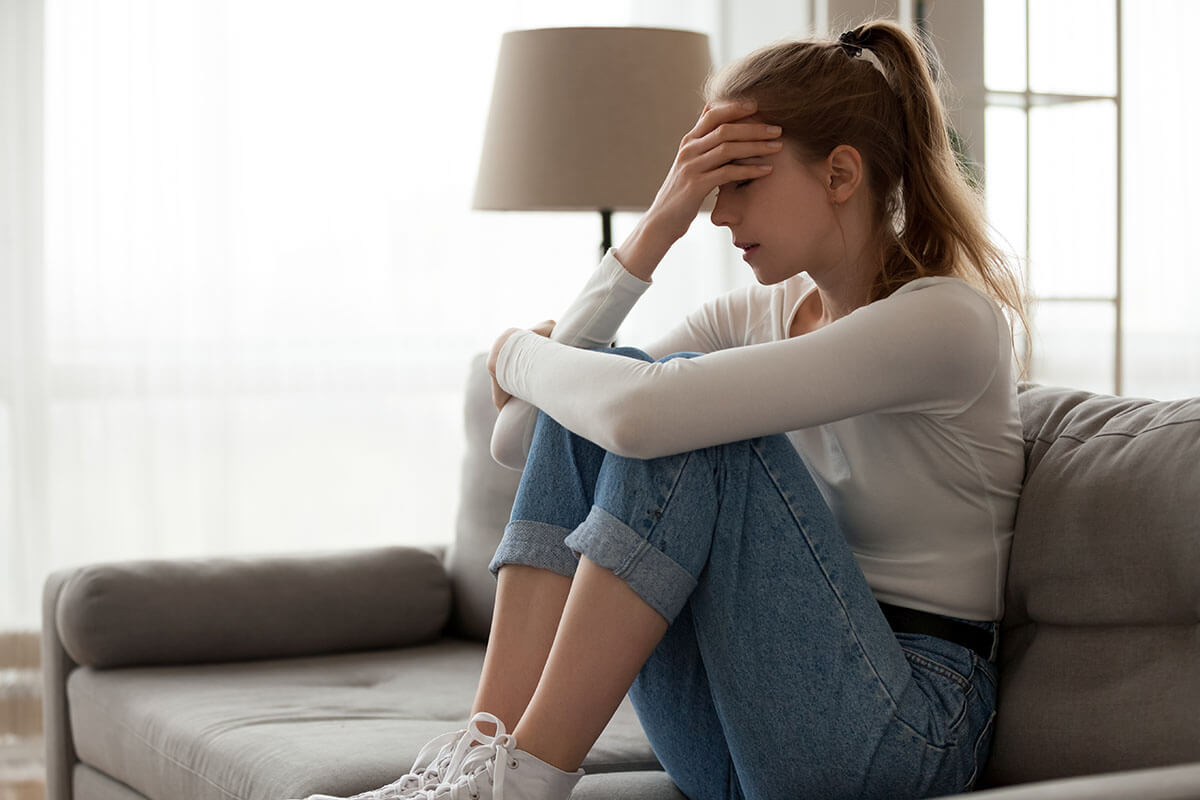Anxiety attacks can feel overwhelming, leaving you uncertain about what’s happening and how to cope. For those who are new to these experiences, understanding what triggers an anxiety attack is an essential first step toward managing symptoms and finding relief. Anxiety attacks often stem from various triggers, and the signs may differ from one person to the next. Identifying an anxiety attack can be confusing. Once you can do this, however, it becomes easier to get help managing anxiety symptoms.
7 Common Triggers for Anxiety
Let’s outline common triggers for anxiety attacks so you can recognize potential causes and know when it’s time to reach out for support:
1. Stressful Situations
Big or small, stressful moments can be the leading cause of anxiety attacks for many people.
- Meeting tight work deadlines or facing a packed schedule
- Financial strain, such as managing bills or unexpected expenses
- Relationship conflicts like arguments with loved ones or friends
- Academic pressure, such as studying for an exam or giving a presentation
When stress builds without an outlet, it can overwhelm your emotional and physical balance, leading to sudden anxiety symptoms like racing thoughts or difficulty breathing.
2. Health Concerns
Medical challenges, whether physical or mental, can play a significant role in triggering anxiety.
- Underlying conditions like chronic illness, heart issues, or hormonal imbalances
- Fear of medical procedures or doctor visits
- Experiencing side effects from new medications
Sometimes, even health-related uncertainty can amplify feelings of worry, leaving you more prone to anxiety episodes.
3. Traumatic Experiences
Trauma, whether recent or in the past, can create lingering emotional effects that may result in anxiety attacks.
- Flashbacks or vivid memories of distressing events
- Exposure to reminders of the trauma, like certain sounds, smells, or places
- Sudden feelings of vulnerability or loss of control
If unresolved, trauma can keep your nervous system in a heightened state that contributes to recurring anxiety symptoms.
4. Social Pressures
Social interactions can often feel intimidating, especially if you struggle with social anxiety or self-doubt.
- Preparing to speak in front of a crowd or meeting new people
- Fear of being judged or criticized in social settings
- Attending large gatherings where you feel lost or overwhelmed
This environment may cause physical symptoms such as sweating, nausea, or rapid heartbeats, leaving you feeling panicked.
5. Lack of Sleep
Consistently poor sleep can weaken your resilience against anxiety triggers, making you more susceptible.
- Skipping sleep due to busy schedules or insomnia
- Waking up often during the night or struggling with nightmares
- Feeling too fatigued to concentrate on daily tasks
Without proper rest, your mind and body have little chance to recover, leaving you more vulnerable to stress and anxiety.
6. Caffeine or Stimulants
What you consume can directly impact your anxiety levels, particularly if you overdo it on stimulants.
- Drinking excessive coffee, energy drinks, or tea
- Using over-the-counter medications that contain stimulants
- Experiencing jitteriness that mimics anxiety symptoms like a racing heart or restlessness
Although caffeine often feels helpful at first, it can heighten your body’s alertness to stress, tipping you into an anxiety attack.
7. Uncertainty or Fear of the Unknown
Unpredictability in life can create feelings of helplessness or dread for many people.
- Worrying about future events, even if they’re far away
- Feeling unprepared for unexpected changes in work or personal life
- Struggling with indecision about major life choices
An overactive imagination about potential “what ifs” can quickly escalate into a full-on anxiety episode.
Can an Anxiety Attack Happen for No Reason?
Sometimes, anxiety attacks might appear unprovoked, leaving you wondering what set them off. While it may feel like there’s no cause, this might happen because your nervous system is already on edge, reacting to subtle cues you might not even notice.
Perhaps it was a particular thought, a sound, or even just your own body reacting to internal stress. If this happens often, consulting a professional can help uncover hidden triggers or build better coping strategies.
Anxiety or Panic Attack?
Understanding what is the difference between a panic attack and an anxiety attack is important when trying to make sense of symptoms. Anxiety attacks are usually triggered by specific stressors and involve gradual symptoms like worry and restlessness.
Panic attacks, on the other hand, occur more suddenly and might include intense reactions such as rapid heartbeats, chest pain, or a sense of doom. However, both can feel extremely distressing, which is why professional help can be so beneficial.
Managing Anxiety Attacks with Insight Into Action Therapy
You might wonder what is the most common trigger for anxiety, but the truth is, it’s different for everyone. Whether you’ve noticed specific patterns or feel uncertain about what triggers an anxiety attack for you, it’s important to seek support when symptoms become hard to manage. Insight Into Action Therapy can help you identify these triggers, teach effective coping strategies, and build tools for long-term relief.
Anxiety attacks don’t have to take over your life. By working with experienced professionals, you can regain control and confidence one step at a time. If you’re ready to move forward, call Insight Into Action Therapy today at 703.935.8544 or use our online contact form to start your healing process.







